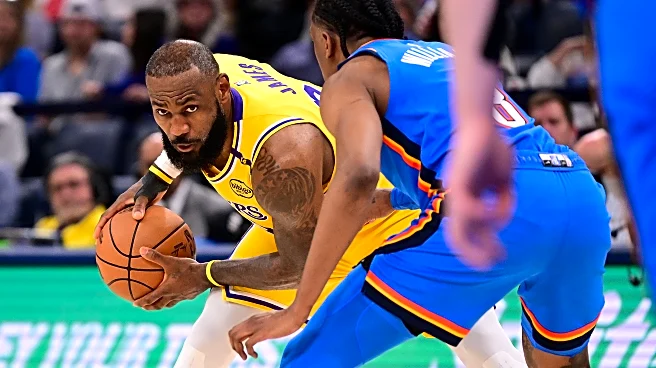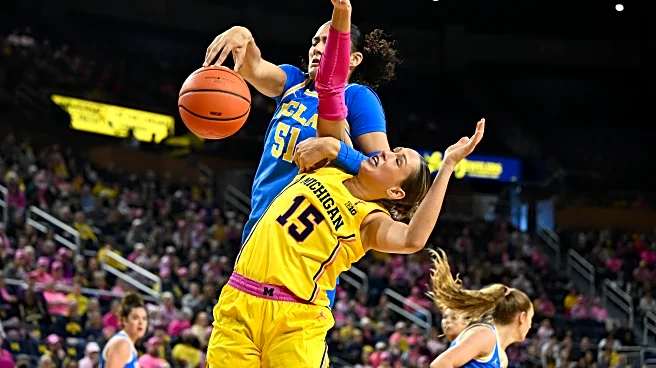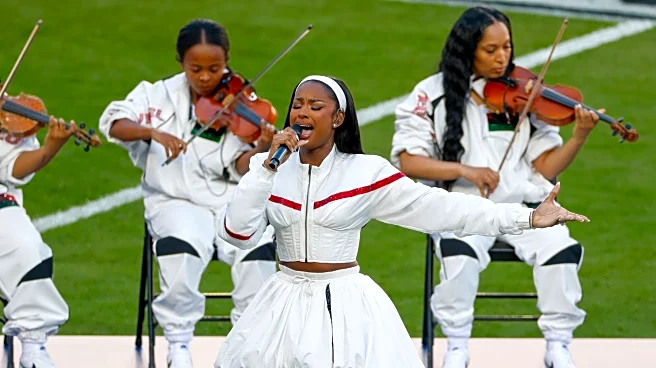What's Happening?
The Arizona Cardinals are facing a complex situation with their quarterback lineup as Coach Jonathan Gannon announced Jacoby Brissett will start against the Seattle Seahawks, despite Kyler Murray being the team's designated starter. This decision comes
after Murray's lingering foot injury, which has kept him from playing at full capacity. The announcement was made to provide clarity for game planning, although it raises questions about the team's strategy and Murray's future. The Cardinals are considering the implications of Murray's contract, which includes significant guaranteed payments, and the potential need to keep him off the field to avoid further financial commitments.
Why It's Important?
The Cardinals' handling of their quarterback situation is crucial as it impacts their performance and financial strategy. With Murray's contract guaranteeing substantial payments, the team must navigate the decision to play him carefully. Brissett's performance could influence the team's direction, potentially leading to a trade or release of Murray if he remains sidelined. This situation highlights the challenges teams face in managing player contracts and injuries, which can affect their competitiveness and financial health. The Cardinals' decisions will be closely watched as they balance immediate performance needs with long-term financial implications.
What's Next?
The Cardinals will continue to assess Murray's recovery and Brissett's performance, making week-to-week decisions on their starting quarterback. If Brissett maintains strong performances, the team may opt to keep Murray off the field to preserve his trade value and avoid further financial commitments. The Cardinals will also explore potential trade options for Murray, considering the impact on their salary cap and roster flexibility. As the season progresses, the team will need to address the quarterback situation to ensure stability and competitiveness.
Beyond the Headlines
The Cardinals' quarterback dilemma underscores the broader issues of player management and contract negotiations in the NFL. Teams must balance the need for immediate performance with long-term financial commitments, often leading to complex decisions regarding player health and trade value. This situation may prompt other teams to reevaluate their strategies for managing high-profile players with significant contracts, particularly in the context of injuries and performance fluctuations.














